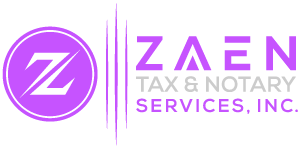
The Unexpected Skills of a Notary Agent turned Ordained Minister
Introduction
In today’s blog article, we will explore the fascinating journey of a notary agent who discovered new dimensions in their professional life by transitioning into the role of an ordained minister. We will delve into the importance of unexpected skills gained from diverse professional backgrounds, showcasing how their expertise as a notary agent enhanced their ministry work.
The Call to Ministry
Personal motivations and experiences leading to the decision
For some individuals, a calling to ministry represents a deep spiritual and personal journey. It often arises from a profound desire to serve others, inspire change, and make a meaningful difference in the lives of others. Personal experiences, transformative moments, and a sense of spirituality can strongly influence the decision to pursue ministry, leading individuals to dedicate their lives to helping and guiding others.
Challenges faced during the transition
Transitioning from the role of a notary agent to that of an ordained minister can present its own set of challenges. It involves embracing a new identity, adapting to a different set of responsibilities, and navigating the complexities of religious institutions. The transition demands emotional resilience, a willingness to learn and grow, as well as an openness to new perspectives and beliefs.
Skillset Transformation
Adapting notary agent skills for ministry duties
One unexpected advantage of being a notary agent turned ordained minister is the ability to adapt and transfer existing skills from one profession to another. Although the roles may seem dissimilar at first glance, crucial skills such as attention to detail, organization, and legal knowledge seamlessly translate into the ministerial sphere. A notary agent’s meticulousness, structure, and understanding of legal intricacies can support the execution of administrative tasks, pastoral care, and organizational management within a religious institution.
Transferable skills: attention to detail, organization, and legal knowledge
Attention to detail, acquired through the precise execution of notarial acts, equips ordained ministers with the ability to carefully consider and address the diverse needs of their congregations. Organization, honed through managing legal documents, allows ministers to efficiently handle administrative tasks, plan events, and ensure the smooth functioning of religious activities. Moreover, legal knowledge remains a valuable asset in navigating and understanding the intricacies of church laws, governance, and compliance.
Compassion and Empathy in Ministry
How a notary agent’s experience helps in understanding others
Having served as notary agents, individuals turned ordained ministers possess a unique capacity for understanding others. Throughout their careers, they have interacted with individuals from various backgrounds, listening attentively to their stories, empathizing with their concerns, and addressing their legal needs. This experience provides a solid foundation for connecting with congregants on a deeper level, fostering compassion, and promoting a nurturing environment within the ministry.
Applying emotional intelligence in ministerial work
The empathetic nature developed as notary agents becomes an essential tool for ordained ministers to navigate the complexities of human emotions and relationships. Emotional intelligence allows ministers to discern the underlying concerns and needs of individuals, providing them with the necessary support and guidance. By actively practicing active listening, empathy, and non-judgment, ministers create a safe space for congregants to seek solace, find spiritual guidance, and foster personal growth.
Problem-Solving Abilities
Utilizing critical thinking skills from the notary agent profession
Problem-solving skills gained as notary agents prove invaluable in the ministry. Notary agents often encounter complex legal scenarios that require analytical thinking, effective communication, and the ability to find innovative solutions. These critical thinking skills can be seamlessly applied to ministerial duties, allowing individuals to approach challenges, conflicts, and ethical dilemmas with a level-headed and logical perspective.
Real-life examples of problem-solving as an ordained minister
Ordained ministers frequently face a myriad of real-life challenges within their congregations. These may include resolving conflicts between members, managing logistical issues, or addressing ethical concerns. With their cultivated problem-solving abilities, ministers can mediate disagreements, brainstorm creative solutions, and guide congregants towards a shared resolution. Their adaptability and open-mindedness, honed through their notary agent experiences, enable them to navigate complex situations with grace and wisdom.
Conflict Resolution Techniques
Bringing conflict resolution skills from the notary agent role
Conflict resolution skills acquired as notary agents become an invaluable asset when transitioning to an ordained minister role. Notary agents are often called upon to mediate disputes, negotiate compromises, and find common ground. These skills smoothly transfer into the ministry, enabling ministers to approach intra-church conflicts with a calm and impartial demeanor. The ability to facilitate constructive dialogue and foster understanding greatly assists ministers in promoting harmony and unity within their congregations.
Dealing with interpersonal disputes within the ministry
Interpersonal conflicts can arise within any community, including religious institutions. Ordained ministers, with their conflict resolution expertise, play a pivotal role in addressing and resolving such disputes. By actively listening, facilitating open communication, and encouraging empathy, ministers can guide individuals towards reconciliation, fostering a sense of community and ensuring the spiritual well-being of their congregants.
Professionalism and Ethics
Upholding ethical standards learned as a notary agent
Professionals who transition from the notary agent role to ministry often bring with them a strong commitment to upholding ethical standards. The stringent ethical guidelines adhered to by notary agents seamlessly transfer to the ordained minister’s responsibilities. This commitment to integrity, honesty, and confidentiality creates a safe environment for congregants seeking spiritual guidance, fostering trust, and promoting a sense of authenticity.
Importance of professionalism in ministry
Professionalism is a foundational pillar in any profession, and the ministry is no exception. The notary agent turned ordained minister understands the significance of maintaining professionalism through punctuality, respectful communication, and maintaining appropriate boundaries. By upholding these principles, ministers create a positive and inspiring atmosphere, serving as role models for their congregations.
Effective Communication Strategies
Transferring communication skills from notary agent duties
Effective communication lies at the heart of both the notary agent and ordained minister roles. Notary agents require clear, concise, and accurate communication to ensure clients understand the legal documents they are signing. Ordained ministers rely on effective communication to articulate complex theological concepts and provide spiritual guidance. The ability to communicate proficiently and compassionately transfers seamlessly from one profession to the other, enhancing ministerial effectiveness.
Tailoring communication to connect with diverse congregations
Congregations encompass individuals with diverse backgrounds, experiences, and communication preferences. The skill to adapt and tailor communication styles, crafted throughout a notary agent’s career, enables ordained ministers to connect genuinely with their congregations. Whether conveying inspirational sermons, conducting pastoral counseling sessions, or leading congregational meetings, ministers adeptly adjust their communication strategies to resonate with the unique needs of their diverse congregants.
Multitasking in the Ministry
Juggling various responsibilities, similar to being a notary agent
Mastering the art of multitasking proves indispensable in both the notary agent and ordained minister roles. Just as a notary agent must balance multiple clients, documents, and appointments, ministers must navigate various ministry-related tasks simultaneously. From sermon preparation and pastoral visitations to administrative duties and community outreach, the ability to multitask allows ministers to efficiently manage their time, resources, and responsibilities.
Prioritization techniques for handling multiple tasks
When faced with a multitude of tasks and responsibilities, prioritization becomes paramount. Drawing from their experiences as notary agents, ministers are equipped with the skills to discern the urgency and significance of various obligations. Through careful time management, delegation, and effective decision-making, ministers can prioritize their tasks effectively, ensuring that critical matters receive proper attention while avoiding unnecessary stress and burnout.
Crisis Management Skills
Reacting to unexpected situations with calmness and composure
Both notary agents and ordained ministers may encounter unexpected situations that require swift and composed responses. Notary agents often face last-minute changes, urgent requests, or emergent legal issues, while ministers may encounter crises within their congregations or the wider community. The ability to remain calm, assess situations objectively, and offer support in times of distress allows ministers to provide stability and guidance, fostering resilience and hope within their congregations.
Applying crisis management skills from the notary agent profession
The crisis management skills honed within the realm of notary agents transfer seamlessly into the ministry. From assessing and resolving legal crises to offering emotional support amidst personal or collective struggles, ministers draw upon their crisis management abilities to navigate challenging circumstances. By leveraging their experience and maintaining a compassionate approach, ministers can offer solace, guidance, and practical assistance to those in need.
Navigating Legal Matters in the Ministry
Legal knowledge and experience as a notary agent
A notary agent’s legal knowledge and experience furnish a strong foundation for navigating legal matters within a religious organization. Understanding legal principles, contract execution, and the intricacies of legal documentation allows ministers to ensure compliance, handle contractual agreements, and protect the institution’s interests. This expertise paired with a sense of spiritual guidance empowers ministers to harmoniously bridge the legal and spiritual dimensions of ministry.
Handling legal aspects within a religious organization
Legal matters infiltrate various aspects of religious organizations, ranging from contractual agreements to governance issues. Ordained ministers who previously served as notary agents possess the insight and know-how to oversee these legal processes. Their dexterity in understanding legal contracts, negotiating terms, and representing the needs of the congregation ensures that religious institutions operate within legal bounds while safeguarding the interests and well-being of their members.
Adapting to Different Cultures and Beliefs
Embracing diversity and inclusivity as an ordained minister
Being a notary agent exposes individuals to diverse cultures, beliefs, and backgrounds. This experience fosters an open-mindedness and respect for different perspectives, values, and traditions. Ordained ministers, building upon this foundation, strive to create inclusive and welcoming faith communities that celebrate diversity, embrace various cultural practices, and foster interfaith dialogue.
Lessons learned from interacting with diverse clients as a notary agent
Interacting with a diverse client base as a notary agent provides valuable lessons that carry over into ministry. Respect for cultural differences, the ability to listen attentively, and the skill to navigate delicate conversations become vital tools in establishing meaningful connections within diverse religious communities. Ordained ministers, drawing from their experiences, appreciate the significance of inclusivity, creating a safe and accepting space for all individuals seeking guidance and spiritual growth.
The Power of Empowerment
Utilizing skills gained as a notary agent to serve the community
Serving the community is a fundamental aspect of both the notary agent and ordained minister roles. Notary agents, often at the forefront of legal affairs within the community, gain a deep understanding of the specific needs, challenges, and aspirations of individuals. Ordained ministers, capitalizing on their notary agent background, extend their services to the wider community, offering guidance, support, and compassion where it is needed most.
Making a lasting impact through ministry work
The cumulative experiences of being a notary agent turned ordained minister contribute to a lasting impact within the communities they serve. By marrying their administrative skills with the transformative power of spiritual guidance, ordained ministers create positive change, foster interpersonal connections, and inspire individuals to lead fulfilling lives. Through their ministry work, they play an integral role in creating a better world by empowering, comforting, and inspiring others.
Continual Personal and Professional Development
Striving for growth through ongoing education and self-improvement
The mindset of continual personal and professional development remains at the core of successful individuals transitioning from the notary agent role to ministry. Eager to expand their knowledge and skills, ordained ministers invest in ongoing educational opportunities, spiritual growth, and self-improvement. Whether pursuing advanced theological studies or engaging in community development initiatives, ministers exemplify a commitment to lifelong learning and self-improvement.
Staying up-to-date with legal and ministerial advancements
The notary agent turned ordained minister recognizes the importance of staying informed about both legal and ministerial advancements. This commitment ensures that ministers remain equipped with the latest legal knowledge, best practices, and innovative ministry strategies. By maintaining up-to-date expertise, ministers uphold their responsibility to provide accurate guidance, navigate legal complexities, and adapt to the evolving spiritual needs of their congregations.
Balancing Secular and Spiritual Worlds
Navigating the intersection between legal matters and spirituality
Transitioning from a notary agent to an ordained minister involves successfully navigating the intersection between the secular and spiritual worlds. Ordained ministers adeptly balance legal obligations and responsibilities while remaining grounded in their spiritual calling. By integrating their legal knowledge, professionalism, and ethical standards with an unwavering commitment to their faith, ministers achieve a harmonious blending of these two realms.
Finding harmony between the notary agent and ordained minister roles
Ordination does not overshadow the valuable foundational experiences gained as a notary agent. Instead, it amplifies and enriches the skillset acquired in the previous role. Finding harmony between the notary agent and ordained minister roles allows individuals to embrace the unique contributions they bring to both spheres. This integration leads to a holistic approach to ministry, blending administrative proficiency with spiritual leadership, and ultimately, enhancing the impact of their work.
Serving the Community
Utilizing skills gained as a notary agent to serve the community
Serving the community is a fundamental aspect of both the notary agent and ordained minister roles. Notary agents, often at the forefront of legal affairs within the community, gain a deep understanding of the specific needs, challenges, and aspirations of individuals. Ordained ministers, capitalizing on their notary agent background, extend their services to the wider community, offering guidance, support, and compassion where it is needed most.
Making a lasting impact through ministry work
The cumulative experiences of being a notary agent turned ordained minister contribute to a lasting impact within the communities they serve. By marrying their administrative skills with the transformative power of spiritual guidance, ordained ministers create positive change, foster interpersonal connections, and inspire individuals to lead fulfilling lives. Through their ministry work, they play an integral role in creating a better world by empowering, comforting, and inspiring others.
FAQs: Uncovering Answers to Common Questions
Yes, the journey towards becoming an ordained minister is open to individuals with diverse professional backgrounds. Seeking theological education and training is recommended.
Notary agent skills such as attention to detail, organization, and legal knowledge can enhance the administration and overall effectiveness of ministry duties.
While legal restrictions may vary depending on the jurisdiction, it is crucial for ordained ministers to familiarize themselves with legal requirements related to religious practices and be knowledgeable about any legal constraints.
Conclusion
In conclusion, the transition from a notary agent to an ordained minister showcases how the unexpected skills gained in diverse professional backgrounds can enhance ministry work significantly. The attention to detail, organization, legal knowledge, compassion, problem-solving abilities, conflict resolution techniques, professionalism, effective communication strategies, multitasking capabilities, crisis management skills, legal expertise, adaptation to different cultures and beliefs, flexibility, empowerment, continual personal and professional development, balancing secular and spiritual worlds, and commitment to serving the community are just some of the valuable attributes that make these individuals successful ministers.
Note: This article is intended for informational purposes only and should not be considered as legal advice. Businesses should consult with legal professionals for specific advice related to their circumstances.
RECENT POSTS


Unveiling How Zaen Tax Saved Me from Overpaying Taxes — Shocking Revelation!

Why Seeking Professional Tax Consultation Could Be The Best Decision You’ve Ever Made!

Mistakes You Are Making By Not Using Our Notary Loan Signing Agent Service!

Why Our Notary Loan Signing Agent Service is the Best Solution for You!

Why Notary Services are the Secret Ingredient in Your Business

Why IRS Certified Acceptance Agents are Incredibly Important? The Answer Might Surprise You!

How Hiring a Certified Acceptance Agent Could Change Your Life with the IRS?

The Incredible IRS Pros They Don’t Want You to Know About – Certified Acceptance Agents!

Get Your ITIN Application Approved in No Time with Professional Help!

How to Unlock Tax Benefits You Never Knew You Were Entitled to With ITIN Application

Say Goodbye to Bad Credit Forever: Discover the Best Credit Repair Service!

Revealed: This is How You Can Improve Your Credit Score Overnight!

The Secrets to Easily Managing Immigration Forms Revealed by Notary Agent!

Frustrated with Immigration Forms? Not Anymore with this Notary Agent!

Ever Tried Fingerprinting Service by a Notary Agent? You Won’t Believe the Impact!

How a Notary Agent Takes Fingerprinting to the Next Level!

Ordained Minister or Notary Agent? Find Out Who Does What and Why You Need One!

The Unexpected Skills of a Notary Agent turned Ordained Minister

Can’t Wait to Get Your Passport Photos?? Zaen Tax Have you Sorted!!

Shocking facts about Employee Retention Credit service by a notary agent revealed

You won’t believe the incredible results this notary agent delivers with their ERC service!

This notary agent’s Employee Retention Credit service will blow your mind!

Are You Paying Too Much on Student Loans? This Notary Agent Can Help You Save!

Say Goodbye to Student Loan Debt Forever with the Revolutionary Notary Agent Method!

